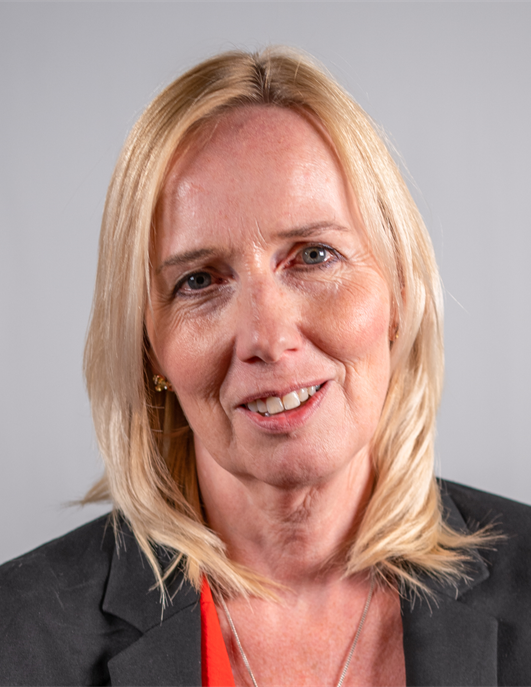


Despite the recent launch of specialised Foetal Alcohol Spectrum Disorder (FASD) clinics, a local campaigner has explained that the lack of understanding among professionals is causing “a tangible lacuna between diagnosis and support” for individuals facing the "life-long disability".
FASD is a neurodevelopmental condition which is caused when a person is exposed to alcohol before birth.
Each person with FASD is affected differently, but often face challenges in learning and cognition, and managing emotions. FASD is also associated with over 400 known conditions which can affect any system in the body.
Children with FASD can benefit from a range of support, including speech and language therapy and occupational therapy.
Andy Wright – who has a son with FASD and runs a local support group – said that it is "great news" that clinics for diagnosing and offering support to children and young people with FASD have recently been set up in Jersey.
However, Mr Wright stressed that there is still a long way to go in terms of awareness and knowledge about FASD, saying there is a "dearth of FASD understanding in the island,” especially within professional services.
He said: "Through our experience, educational psychologists, teachers, GPs, Speech and Language Therapy (SaLT) therapists, social workers, and occupational health therapists remain very much in the dark with regard to what FASD is."
Pictured: Mr Wright runs 'FASD Jersey', a local support group which draws upon lived experiences and research to raise awareness and offer advice.
Mr Wright is particularly concerned by the lack of a diagnostic process and support for adults coping with FASD. He highlighted that the new clinics primarily concentrate on children, yet FASD is a "multi-generational, lifelong disability", stressing that "adults with FASD need a diagnosis too".
In response, Andy Weir, Director of Mental Health & Adult Social Care, said: “We recognise that people do not grow out of FASD, and provide services that may support or treat symptoms and associated condition in adults."
Mr Wright has called for comprehensive cross-agency efforts from the Government, including raising awareness about the potential consequences of prenatal alcohol exposure, establishing clear public health guidelines, reducing stigma around the condition, and establishing support for adults with FASD.
Scrutiny Chair, Deputy Catherine Curtis agreed and has raised the matter with Ministers.
She said: "A commitment from both the Health and Education departments to create an FASD strategy, in consultation with the families affected, would be best practice, to include public health information and post-diagnostic support."

Pictured: Deputy Catherine Curtis is Chair of the Children, Education, and Home Affairs Scrutiny Panel.
Deputy Curtis added that this issue is especially important in the island as "alcohol consumption is very high in Jersey and it’s likely that there are Jersey residents, both adults and children, who have been affected by prenatal alcohol exposure, but are undiagnosed and have possibly had difficulties in regulating their behaviour".
"The CEHA [Children, Education, and Home Affairs] panel will continue to question the Minister on FASD training for education and children's services staff," she added.
Mr Wright has also called for increased attention to addressing FASD within the criminal justice system. He highlighted that the cognitive and emotional challenges associated with FASD can increase the risk of involvement in criminal activities.
He explained that understanding these factors is crucial for developing more effective approaches to handling individuals with FASD within the legal system.
Mr Wright also stressed the need to focus on individuals in settings such as Greenfields and the prison population, explaining that "research indicates that young adults with FASD are 19 times more likely to be imprisoned compared to their neurotypical peers".
Pictured: FASD Jersey highlighted significant discrepancies in reported alcohol consumption and a study of prenatal exposure in Jersey.
In response to these concerns, the Justice and Home Affairs Department explained that the Prison's Substance Misuse Therapist, who is qualified to identify FASD, meets with every prisoner who comes into custody to carry out a brief health assessment.
Prisoners displaying any FASD symptoms are then directed to the prison's Health Care Department for additional assessment, which includes a GP and psychiatric evaluation.
The Health Care Department and Substance Misuse teams work together to support prisoners diagnosed with FASD, ensuring their individual needs are addressed throughout their time in custody.
However, Mr Wright asked: "Why is a substance misuse therapist seeing people with FASD, when those with FASD do not necessarily have an alcohol misuse problem? It would have been their parent who drank alcohol during pregnancy that caused the FASD."
What is FASD?
FASD is an incurable brain-based disability resulting from prenatal alcohol exposure, causing lasting brain damage.
FASD is linked to over 400 related conditions affecting various body systems, impacting learning, cognition, and emotional regulation.
Emotional dysregulation is common in people with FASD, leading to behaviour like aggression and verbal abuse.
People with FASD can also struggle with abstract concepts such as rules, laws, time, money, and personal ownership.
Pictured top: Andy Wright and his son Rylie, who lives with FASD.
Comments
Comments on this story express the views of the commentator only, not Bailiwick Publishing. We are unable to guarantee the accuracy of any of those comments.